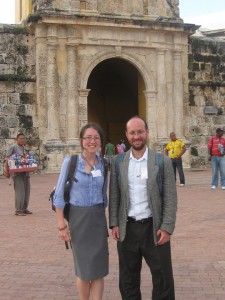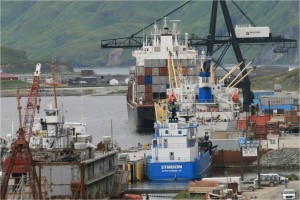
My very first COP experience, the 10th Conference of the Parties to the Basel Convention in Cartagena, Colombia, was hailed by delegates, observers, and the UNEP Executive Director Achim Steiner as the most successful Basel COP in the history of the Basel Convention. I was fortunate to have joined CIEL’s delegation that participated in such a momentous event.
COP10 began with various remarks from dignitaries, and then proceeded to its usual order of business – the election of officers and adoption of the agenda. As is customary, the President of the COP was elected from the host country: President Paula Caballero from the Colombia Ministry of Foreign Affairs. This was followed by plenary discussions, during which delegates and observers laid out their differing opinions on issues of concern. On the more contentious issues, delegates called for “contact groups” to be formed so that consensus could be reached among a smaller group of interested Parties. Contact groups were formed with respect to the Indonesian-Swiss Country-Led Initiative (CLI) to improve the effectiveness of the Basel Convention, the 10-year New Strategic Framework, shipbreaking, technical guidelines, and budget.

I followed the contact group on shipbreaking, which addressed the question whether the Hong Kong Convention for the Safe and Environmentally Sound Recycling of Ships (2009) established an equivalent level of control as the Basel Convention. The Parties’ statements clearly evidenced differences over equivalence, particularly between developed states (EU, US, Japan) and developing states from Africa and Latin America. Notably, China was the only country out of the five primary shipbreaking states represented at the contact group. China declined to state which regime is better, but noted that it was important to focus on what Basel can do to address ship recycling. The stalemate among the Parties meant that the contact group finalized its work on Wednesday without any prospect of reaching consensus.
At the opening of the working group on Thursday, the President of the COP intervened to offer compromise language. The President’s proposal recognized a divergence of views on equivalence and Basel’s continued competence over shipbreaking, but also encouraged Parties to ratify the Hong Kong Convention and enable its early entry into force. In the President’s words, a consensus equally allocates dissatisfaction among Parties. The shipbreaking language adopted by the COP did just that.
 COP10 was also notable for other reasons: the adoption of the CLI facilitating the early entry into force of the Ban Amendment and the renewed emphasis on prevention and minimization of the generation of hazardous waste. In particular, the willingness of Parties to agree on the number of ratifications necessary for the entry into force of the Ban Amendment (3/4 of the Parties at the time of adoption of the Amendment at COP3, which translates to 68 Parties), meant only 17 more Parties are necessary for the Amendment to take effect. While some Parties (e.g., Japan and Australia) remarked that they would have preferred a different interpretation on the number of ratifications, the overwhelming desire by all Parties to reach consensus on the CLI and the Ban Amendment carried the day.
COP10 was also notable for other reasons: the adoption of the CLI facilitating the early entry into force of the Ban Amendment and the renewed emphasis on prevention and minimization of the generation of hazardous waste. In particular, the willingness of Parties to agree on the number of ratifications necessary for the entry into force of the Ban Amendment (3/4 of the Parties at the time of adoption of the Amendment at COP3, which translates to 68 Parties), meant only 17 more Parties are necessary for the Amendment to take effect. While some Parties (e.g., Japan and Australia) remarked that they would have preferred a different interpretation on the number of ratifications, the overwhelming desire by all Parties to reach consensus on the CLI and the Ban Amendment carried the day.
Basel COP10 demonstrated how multilateralism can be effective in addressing complex but common environmental problems such as the prevention and management of hazardous waste. I hope what I witnessed in Cartagena will be repeated in future COPs!
Originally posted on October 26, 2011.
